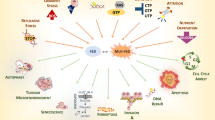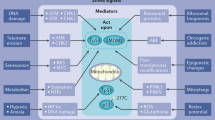Abstract
The tumour suppressor gene p53 is frequently mutated in human cancer. Tumour derived p53 mutants are usually transcriptionally inactive, but some mutants retain the ability to transactivate a subset of p53 target genes. In addition to simple loss of function, some p53 mutants may be carcinogenic through a dominant negative mechanism. Aiming at a more general classification of p53 mutants into predictive functional categories it is important to determine (i) which p53 mutants are dominant, (ii) what features characterize dominant mutants and (iii) whether dominance is target gene specific. The ability of 71 p53 mutants to inhibit wild type p53 was determined using a simple yeast transcriptional assay. Approximately 30% of the mutants were dominant. They preferentially affect highly conserved amino acids (P<0.005), which are frequently mutated in tumours (P<0.005), and usually located near the DNA binding surface of the protein (P<0.001). Different tumour-derived amino acid substitutions at the same codon usually have the same dominance phenotype. To determine whether the ability of p53 mutants to inhibit wild type p53 is target gene specific, the dominance towards p21, bax, and PIG3 binding sites was examined. Approximately 40% of the 45 mutants examined were dominant for the p21 (17/45) or PIG3 (20/45) responsive elements and 71% (32/45) were dominant for the bax responsive element. These differences are statistically significant (p21 vs bax, P<0.003; bax vs PIG3, P<0.02, Fisher's exact test) and defined a hierarchy of dominance. Finally, we extended the analysis to a group of mutants isolated in BRCA-associated tumours, some of which retained wild type level of transcription in yeast as well as in human cells, but show gain of function in transformation assays. Since transformation assays require transdominant inhibition of the endogenous wild type allele, one possible explanation for the behaviour of the BRCA-associated mutants is that they adopt conformations able to bind DNA alone but not in mixed tetramers with wild type p53. The yeast data do not support this explanation, because all BRCA-associated mutants that behaved as wild type in transcription assay were recessive in dominance assays.
This is a preview of subscription content, access via your institution
Access options
Subscribe to this journal
Receive 50 print issues and online access
$259.00 per year
only $5.18 per issue
Buy this article
- Purchase on Springer Link
- Instant access to full article PDF
Prices may be subject to local taxes which are calculated during checkout


Similar content being viewed by others
References
Aurelio ON, Kong X-T, Gupta S, Stanbridge EJ . 2000 Mol. Cell. Biol. 20: 770–778
Bargonetti J, Reynisdottir I, Friedman PN, Prives C . 1992 Genes Dev. 6: 1886–1898
Blagosklonny MV, Giannakakou P, Romanova LY, Ryan KM, Voused KH, Fojo T . 2001 Carcinogenesis 22: 861–867
Brachmann RK, Vidal M, Boeke JD . 1996 Proc. Natl. Acad. Sci. USA 93: 4091–4095
Campomenosi P, Monti P, Aprile A, Abbondandolo A, Frebourg T, Gold B, Crook T, Inga A, Resnick MA, Iggo R, Fronza G . 2001 Oncogene 20: 3573–3579
Cho Y, Gorina S, Jeffrey PD, Pavletich NP . 1994 Science 265: 346–355
Di Como CJ, Prives C . 1999 Oncogene 16: 2527–2539
Flaman JM, Robert V, Lenglet S, Moreau V, Iggo R, Frebourg T . 1998 Oncogene 16: 1369–1372
Frebourg T, Sadelain M, Ng Y-S, Kassel J, Friend SH . 1994 Cancer Res. 54: 878–881
Hernandez-Boussard T, Rodriguez-Tome P, Montesano R, Hainaut P . 1999 Hum. Mutat. 14: 1–8
Inga A, Cresta S, Monti P, Aprile A, Scott G, Abbondandolo A, Iggo R, Fronza G . 1997a Carcinogenesis 18: 2019–2021
Inga A, Iannone R, Monti P, Molina F, Bolognesi M, Abbondandolo A, Iggo R, Fronza G . 1997b Oncogene 14: 1307–1313
Inga A, Scott G, Monti P, Aprile A, Abbondandolo A, Burns PA, Fronza G . 1998 Carcinogenesis 19: 741–746
Inga A, Chen FX, Monti P, Aprile A, Campomenosi P, Menichini P, Ottaggio L, Viaggi S, Abbondandolo A, Gold B, Fronza G . 1999 Cancer Res. 59: 689–695
Jõers A, Kristjuhan A, Kadaja L, Maimets T . 1998 Oncogene 17: 2351–2358
Kelly JD, Inga A, Chen F-X, Dande P, Shah D, Monti P, Aprile A, Burns PA, Scott G, Abbondandolo A, Gold B, Fronza G . 1999 J. Biol. Chem. 274: 18327–18334
Kern SE, Pietenpol JA, Thiagalingam S, Seymour A, Kinzler KW, Vogelstein B . 1992 Science 265: 827–830
Ludwig RL, Bates S, Vousden KH . 1996 Mol. Cell. Biol. 16: 4952–4960
Marutani M, Tonoki H, Tada M, Takahashi M, Kashiwazaki H, Hilda Y, Hamada J-I, Asaka M, Moriuchi T . 1999 Cancer Res. 59: 4765–4769
Monti P, Inga A, Aprile A, Campomenosi P, Menichini P, Ottaggio L, Viaggi S, Ghigliotti G, Abbondandolo A, Fronza G . 2000 Mutagenesis 15: 127–132
Ory K, Legros Y, Auguin C, Soussi T . 1994 EMBO J. 13: 3496–3504
Robert V, Michel P, Flaman JM, Chiron A, Martin C, Charbonnier F, Paillot B, Frebourg T . 2000 Carcinogenesis 21: 563–565
Rowan S, Ludwig RL, Haupt Y, Bates S, Lu X, Oren M, Vousden KH . 1996 EMBO J. 15: 827–838
Smith PD, Crossland S, Parker G, Osin P, Brooks L, Waller J, Philip E, Crompton MR, Gusterson BA, Allday MJ, Crook T . 1999 Oncogene 18: 2451–2459
Soussi T, May P . 1996 J. Mol. Biol. 260: 623–637
Walker DR, Bond JP, Tarone RE, Harris CC, Makalowski W, Boguski MS, Greenblatt MS . 1999 Oncogene 18: 211–218
Waterman JLF, Waterman MJF, Halazonetis TD . 1996 Cancer Res. 56: 158–163
Acknowledgements
We thank Thierry Frebourg, and Tim Crook for supplying yeast strains and BRCA-associated p53 mutants. We thank Anna Aprile for technical assistance. We thank Richard Iggo for critical reading of the manuscript. P Monti is supported by a ‘Fondazione Italiana per la Ricerca sul Cancro’ (FIRC) fellowship. This work was partially supported by the Associazione Italiana per la Ricerca sul Cancro (AIRC to G Fronza) by the Ministero dell'Università della Ricerca Scientifica e Tecnologica (MURST), and by the EC contract No 17225-2000-12 F1ED ISP IT.
Author information
Authors and Affiliations
Corresponding author
Rights and permissions
About this article
Cite this article
Monti, P., Campomenosi, P., Ciribilli, Y. et al. Tumour p53 mutations exhibit promoter selective dominance over wild type p53. Oncogene 21, 1641–1648 (2002). https://doi.org/10.1038/sj.onc.1205250
Received:
Revised:
Accepted:
Published:
Issue Date:
DOI: https://doi.org/10.1038/sj.onc.1205250
Keywords
This article is cited by
-
Clinical aspects of TP53 gene inactivation in diffuse large B-cell lymphoma
BMC Medical Genomics (2019)
-
Phase I Study of a Systemically Delivered p53 Nanoparticle in Advanced Solid Tumors
Molecular Therapy (2013)
-
Establishment of ponasterone A-inducible the wild-type p53 protein-expressing clones from HSC-1 cells, cell growth suppression by p53 expression and the suppression mechanism
Archives of Dermatological Research (2009)
-
Activation of the p53–p21Cip1 pathway is required for CDK2 activation and S-phase entry in primary rat hepatocytes
Oncogene (2008)
-
p53 and its family members – reporter genes may not see the difference
Cell Death & Differentiation (2004)



